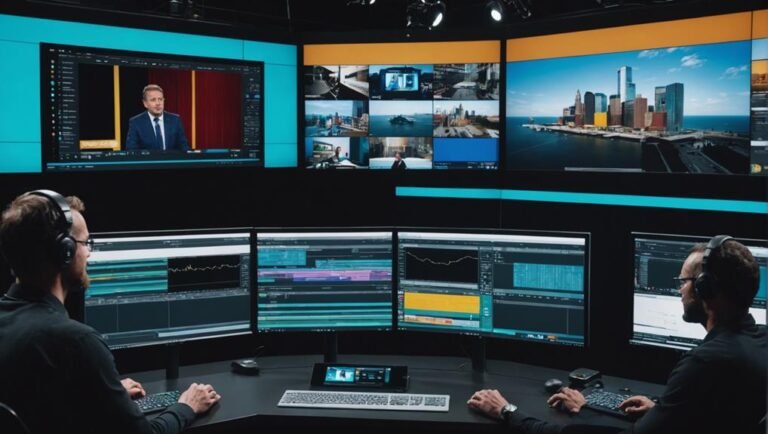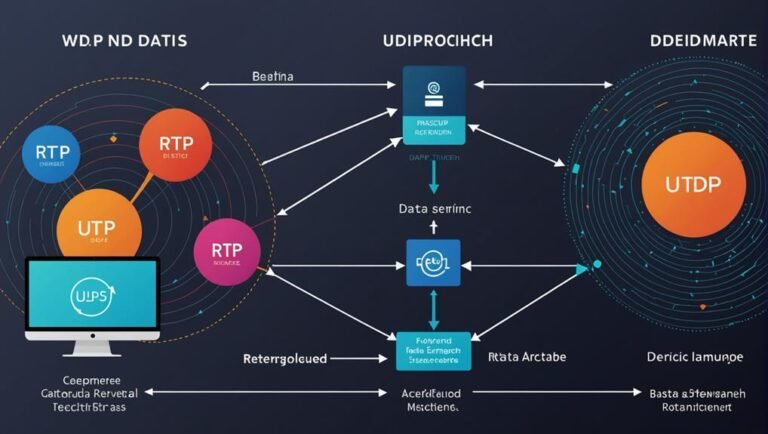When deciding between CCTV and WiFi cameras, your choice will depend on your security needs. WiFi cameras are simpler to install – just plug in and connect to your network. They offer great flexibility but are reliant on WiFi strength. On the other hand, CCTV cameras require more setup with extensive wiring but offer a stable, uninterrupted connection, making them ideal for larger areas. When it comes to video quality, CCTV cameras typically provide higher resolution and consistent performance. For storage, WiFi cameras often rely on cloud options while CCTV cameras use local DVRs. If you’re interested in more details about security features, video quality, and smart integration, there’s more to explore.
Installation Process
When comparing the installation process of CCTV and WiFi cameras, you’ll find that WiFi cameras are generally simpler and quicker to set up. You won’t need to worry about extensive wiring or drilling holes in your walls. Most WiFi cameras are designed for easy, do-it-yourself installation, allowing you to place them wherever you need with minimal hassle. Just plug them in, connect to your WiFi network, and you’re good to go.
CCTV systems, on the other hand, often require professional installation. You’ll need to run cables from each camera to a central DVR (Digital Video Recorder), which means dealing with complex wiring and possibly hiring an expert. This can be time-consuming and costly, not to mention it limits your flexibility in camera placement.
If you value your freedom and prefer a hassle-free setup, WiFi cameras are a more convenient choice. You can easily move them around as needed, without being tied down by cables. Plus, their user-friendly apps make it simple to monitor your property remotely. In contrast, the fixed nature of CCTV systems can feel restrictive and complicated. So, for a straightforward, flexible solution, WiFi cameras definitely have the edge in installation ease.
Connectivity and Range
After setting up your cameras, it’s important to evaluate the connectivity and range of CCTV and WiFi systems. CCTV cameras typically rely on wired connections, ensuring a stable link. This means you won’t have to worry about signal interference or range limitations as long as your cables are correctly installed. They’re ideal for large properties or areas where a constant, uninterrupted connection is important.
On the other hand, WiFi cameras give you the freedom to place them virtually anywhere within the range of your wireless network. However, they’re dependent on the strength and stability of your WiFi signal. If your signal is weak or there’s significant interference, you might experience lags or disconnections. You can boost your WiFi range with extenders, but it’s something you’ll need to take into account if you have a large area to cover.
Ultimately, if your priority is freedom of placement and the ability to easily relocate cameras, WiFi systems are the way to go. If you need rock-solid reliability and aren’t concerned with moving the cameras often, CCTV might be your best bet. Evaluate your specific needs and choose the system that aligns with your goals.
Video Quality
Video quality is an essential factor to take into account, as it directly impacts your ability to accurately monitor and review footage. When comparing CCTV and WiFi cameras, you’ll notice differences in resolution, clarity, and overall performance. CCTV cameras are often hardwired, which can support higher resolutions and stable video quality. On the other hand, WiFi cameras rely on wireless networks, which might sometimes affect the video quality due to bandwidth limitations or signal interference.
To make an informed choice, consider the following factors:
- Resolution: Higher resolution means crisper, clearer images. CCTV cameras typically offer higher resolution compared to many WiFi cameras.
- Frame Rate: A higher frame rate provides smoother video playback. CCTV systems often maintain consistent frame rates, while WiFi cameras might experience drops.
- Compression: Different cameras use various compression methods, impacting storage and quality. CCTV systems may use more efficient compression techniques.
- Night Vision: Assess the night vision capabilities. Some CCTV cameras are equipped with advanced infrared technology that outperforms many WiFi cameras.
Storage Options
Considering storage options is crucial, as it determines how long and how securely you can retain your surveillance footage. When choosing between a CCTV or a WiFi camera, you’ll find distinct differences in how each handles storage.
CCTV systems typically store footage on a local DVR (Digital Video Recorder) or NVR (Network Video Recorder). This setup gives you the freedom to keep your data offline, reducing the risk of hacking. Plus, local storage means you’re not reliant on internet speed or cloud subscriptions. However, you’ll need to manage physical storage space, which might mean upgrading your hard drives periodically.
On the other hand, WiFi cameras often use cloud storage, offering you the flexibility to access footage from anywhere. Cloud storage can be a game-changer if you’re always on the go. You won’t have to worry about physical storage limits, but you’ll likely face subscription fees. Some WiFi cameras also support SD cards for local storage, providing a hybrid solution that balances both approaches.
Ultimately, your choice depends on your needs for accessibility, security, and cost. Weighing these factors will help you make an informed decision that aligns with your lifestyle and desire for freedom.
Security Features
When evaluating security features, it is important to understand how each type of camera protects your data and privacy. CCTV cameras are wired directly to a recording device, making them less susceptible to hacking compared to WiFi cameras. However, WiFi cameras offer encryption technologies that can safeguard your data over the network.
To make an informed choice, consider these key points:
- Data Encryption: WiFi cameras often use advanced encryption to guarantee your video feed is secure from unauthorized access.
- Physical Security: CCTV systems are typically more resistant to tampering because they’re hardwired and can be placed in secure locations.
- Remote Access: WiFi cameras allow you to monitor your property from anywhere, giving you the freedom to keep an eye on things even when you’re away.
- Alert Systems: Both types can offer real-time alerts, but WiFi cameras often come with smart features like motion detection and instant notifications to your phone.
Cost Comparison
Comparing the costs of CCTV and WiFi cameras reveals significant differences that might influence your decision. If you’re looking for a budget-friendly option, WiFi cameras are usually cheaper upfront. They often come as plug-and-play devices, so you won’t need to spend extra on professional installation. Plus, you can expand your system by adding more cameras whenever you want, making it a flexible choice for someone who values freedom and adaptability.
On the other hand, CCTV systems can be more expensive initially. They usually require professional installation, which adds to the cost. The cameras themselves might be pricier too, but they often offer higher durability and reliability. If you’re considering long-term investment and extensive coverage, this could be a worthwhile option despite the higher upfront costs.
Don’t forget about ongoing costs. WiFi cameras might require subscription fees for cloud storage, which can add up over time. CCTV systems generally use local storage, so you won’t face recurring fees, but you might need to invest in additional hardware like DVRs or NVRs.
Ultimately, your choice will depend on your budget, installation preferences, and long-term financial plans. Weigh these factors carefully to find the best fit for your needs.
Smart Integration
Beyond cost considerations, you’ll want to explore how well CCTV and WiFi cameras integrate with smart home systems. This integration can greatly enhance your home’s security and convenience. WiFi cameras generally offer more flexibility in this area, connecting seamlessly with various smart home devices. They often sync with voice assistants like Alexa and Google Assistant, enabling you to control them with simple voice commands.
CCTV systems, traditionally hardwired, may lag behind in smart integration. However, modern CCTV options are catching up. Some now offer compatibility with smart home hubs, allowing you to manage them through centralized apps. Before making a choice, consider these key points:
- Compatibility: Check if the camera works with your existing smart home devices.
- Ease of Integration: Look for systems that don’t require extensive setup or additional hardware.
- Features: Make sure you get features like remote access, motion alerts, and cloud storage.
- Security: Prioritize cameras with strong encryption and secure access controls.
Ultimately, the right choice depends on your specific needs and how deeply integrated you want your home security to be. Weighing these factors will help you find the best fit for a truly connected and secure home.
Frequently Asked Questions
How Do Weather Conditions Affect CCTV and Wifi Cameras?
Just like the tempest in The Tempest, weather’s wrath affects both CCTV and WiFi cameras. Rain can obscure lenses, while extreme temperatures may disrupt function. You’ll want to guarantee your cameras are weatherproof for uninterrupted surveillance.
Can CCTV and Wifi Cameras Be Used Together in One Security System?
You can absolutely use CCTV and WiFi cameras together in one security system. This combo gives you more flexibility and coverage. Enjoy the freedom to monitor your property efficiently, mixing wired reliability with wireless convenience.
Do CCTV or Wifi Cameras Require Regular Maintenance?
Oh, you bet they do! Both CCTV and WiFi cameras demand regular maintenance. Ignore them, and you’ll find yourself in a world of malfunctioning chaos. Keep them pristine, and your security will never sleep.
What Are the Differences in Power Consumption Between CCTV and Wifi Cameras?
You’ll notice that WiFi cameras generally use less power because they usually rely on batteries. On the other hand, CCTV cameras often require a constant power source, leading to higher energy consumption. Choose what fits your lifestyle best!
Are There Any Privacy Concerns Specific to CCTV or Wifi Cameras?
Did you know 60% of people worry about privacy with cameras? With WiFi cameras, you’re at higher risk of hacking. CCTV cameras, while more secure, can still invade privacy if placed without consent. Choose wisely!



